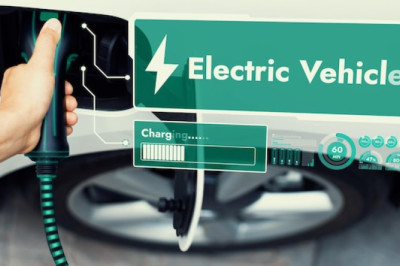Switching to solar energy is a smart move for both the environment and your wallet. However, the initial investment can be significant, so it's crucial to budget properly. This article will guide you through the key factors to consider when budgeting for the installation of solar panels in your home.
Assess Your Energy Needs
Before diving into the financial aspects, it's essential to understand your household's energy consumption. Review your electricity bills from the past year to get an average monthly usage. This information will help you determine the size and number of solar panels you'll need. Larger households with higher energy consumption will require more panels, which will impact the overall cost.
Research Solar Panel Types
Solar panels come in various types, including monocrystalline, polycrystalline, and thin-film. Each type has its own efficiency rate and price point. Monocrystalline panels are generally more efficient but also more expensive. Polycrystalline panels offer a good balance between cost and efficiency, while thin-film panels are cheaper but less efficient. Understanding these differences will help you choose the right type for your budget and energy needs.
Get Multiple Quotes
It's always a good idea to get quotes from multiple solar panel installers. Prices can vary significantly between companies, and getting several quotes will give you a better understanding of the market rate. Make sure to compare not just the prices but also the services included, such as warranties, maintenance, and installation fees. This will help you make an informed decision and potentially save money.
Consider Financing Options
The upfront cost of solar panels can be daunting, but there are various financing options available. You can opt for a solar loan, lease, or power purchase agreement (PPA). Each option has its pros and cons. For instance, a solar loan allows you to own the panels outright, while a lease or PPA might have lower initial costs but won't give you ownership. Evaluate these options carefully to find the best fit for your financial situation.
Look for Incentives and Rebates
Many governments and local authorities offer incentives and rebates to encourage the adoption of solar energy. These can significantly reduce the overall cost of your solar panel installation. Research the available programs in your area, such as federal tax credits, state rebates, and local grants. Some utility companies also offer incentives for installing solar panels. Taking advantage of these opportunities can make your investment more affordable.
Plan for Maintenance Costs
While solar panels require minimal maintenance, it's still important to factor in potential costs. Regular cleaning and occasional inspections can ensure your system operates efficiently. Additionally, consider the lifespan of the inverter, which may need replacement after 10-15 years. Including these future expenses in your budget will help you avoid unexpected costs down the line and ensure the longevity of your solar energy system.












Comments
0 comment